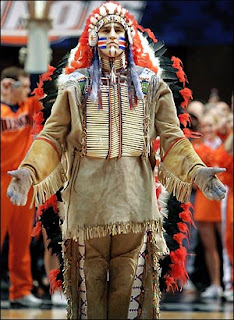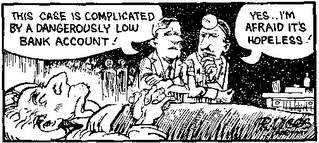Farewell to the Chief

Last Wednesday, as the Fighting Illini Men’s basketball team defeated Michigan, it was not only the last game for senior players. The University of Illinois retired its eighty-one year old Indian mascot, Chief Illiniwek, after much controversy and debate (as a side issue, does the name “Fighting Illini” stereotype Native Americans as overly aggressive warlords?)
If you have been to an Illinois game, you know the halftime routine. A white student dressed in Native American regalia dances around as the crowd cheers wildly. He portrays the fictitious chief of a tribe that was actually a confederacy (Kaskaskia, Cahokia, Peoria, Tamaroa, Moingwena, and Michigamea).
In 2005, the NCAA deemed the mascot an offensive use of American Indian imagery, and barred the University from hosting post-season events. As the University began losing money and exposure from these sanctions, they began to cave.
Needless to say, most student and community members were outraged. The Chief, they believe, stands for power, integrity, and honor. Many Native Americans agree. In 2002, a Peter Harris Research Group poll of those who declared Native American ethnicity on a U.S. census showed that 81% of Native Americans support the use of Indian nicknames in high school and college sports.
Regardless, The University of Illinois is a pubic institution and a place of higher learning. Have taxpayers been supporting institutionalized racism? On the other hand, in an era where Native Americans are forgotten citizens, isn’t the University honoring and calling a great amount of attention to their roots?
Put yourself on the line and tell us where you stand on the Chief.










